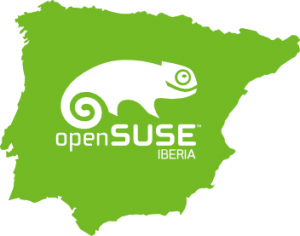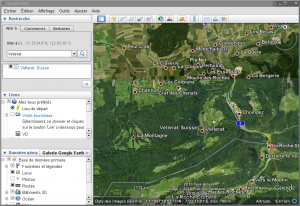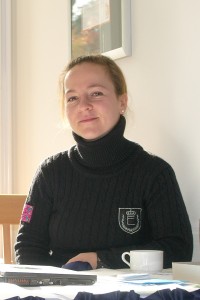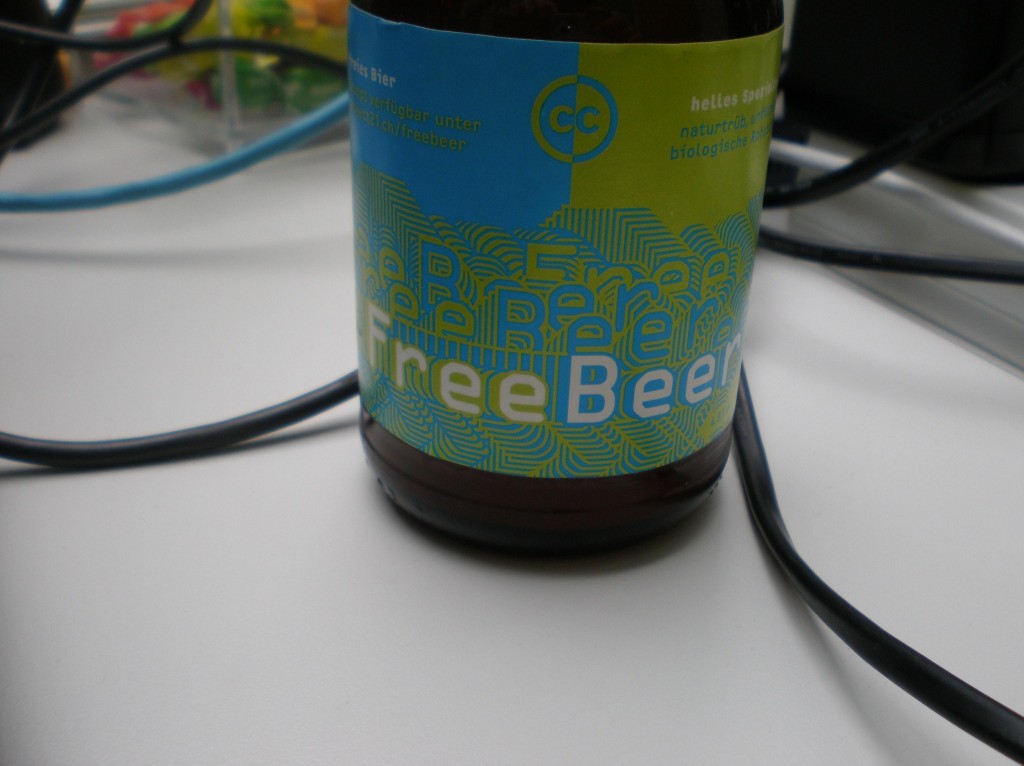On the next 11th of November the Portuguese enthusiasts are meeting up for a friendly Christmas Dinner in the beautiful city of Aveiro in the Silver Coast of Portugal (Litoral Center, the famous Aveiro Geographical Delta, the biggest natural geographical delta in Europe).
This isn’t a formal meeting, but instead an effort to get the existing enthusiasts to know themselves personally, to have some fun and trade ideas. During our Christmas Dinner we expect to receive input from our enthusiasts regarding the assembly of a Portuguese Task Force to handle our representation in the openSUSE International Community.
Though we don’t have a stone set script for the topics some of us would like to approach, I would like at least to approach the following ones:
* openSUSE Iberia – When I was superficially enrolled with the Fedora Project, I’ve tried to rebuild the Portuguese Community associated with the Spanish Community. It didn’t happened back then, but I rejoiced in happiness when this possibility was approached by Javier Lorentte and directed to Carlos Gonçalves. I am a great supporter of such initiative for the following reasons:
– Geography stands as an Opportunity; Both Portugal and Spain are the two countries on the ‘Peninsula Iberica’ (Iberian Peninsula) and share at least the last 1000 years of history. By working together we can accomplish outstanding deeds, specially related to Events and promotion.
– Culture stands as an Opportunity; Culturally speaking, Portugal and Spain are very similar in many ways and share the last 1000 years of History. Both countries present a strong Roman Catholic background, this means that societies behaviors, values and identity are pretty much shared between us. The language itself becomes friendly as most Spanish and Portuguese can actually dialog in a mix of our languages. For example the Portuguese language was born from Galaic-Portuguese, which is also the root of the language spoken in Galicia (Spain).
I look forward to see what the other Portuguese enthusiasts have to say about this issue and how we can work alongside with the Spanish enthusiasts to expand openSUSE in the Iberian Peninsula. Additionally I would like also to make people sensible to the fact that if this happens, the Portuguese crew is still committed to work with our Brazilian friends and also work when possible with them to help in any way we can to the deployment and promotion of openSUSE in Brazil and South Americas. I also hope to see the Spanish community working alongside with their South American counter-parts.
DISCLAIMER: Though I personally encourage such initiative and would love to see it happen, I do have to recon that it also depends on the Spanish Community, and their concerns are as much important as our own. I hope the vast majority of the Spanish Community and Portuguese Community can figure out a good way to develop this idea in the best interest of all.

Image By: Javier Llorente
* Ambassadors Team; I’m also expecting to approach this sensitive issue and check if we are actually strong to get two active Ambassadors. Unlike the ‘traditional’ openSUSE Ambassadors, I expect that the Portuguese enthusiasts approve a different strategy for Portugal (even on an Iberian perspective), 90% focused on University Campus activities amongst our IT students, our future professionals, and 10% oriented to small scale localized events (obviously and hopefully most of them in the Campus of the Universities).
* Mentoring/Tutorship; Because we are so few, we can benefit from other processes that would overkill for the international community. I would like to see if the people more committed to openSUSE could be part of a local ‘mentoring/tutorship’ program for the people who want to get enrolled with openSUSE in a more serious way. If we can make this happen, even with very limited resources (specially manpower), this might become a decisive factor for our local community. Building loyalty with users is a hard task, we will take advantage of the language and cultural tradition to make it happen.
* Forum Moderators; I have filled a request which is under review by the Forums Team to create a localized Forum for Portuguese under the official openSUSE Forums existing structure. This will become a strong tool if approved. I would love to gather two moderators of trust, committed and with time to perform their tasks (though I expect a very low traffic for such forums, as the Brazilian Community have their own resources). I’ve spoken already with Carlos Ribeiro, one of the Brazilian Ambassadors to work with us establishing a link between those forums and the Brazilian Community, as we Portuguese, have all the interest in working with them and informing their initiatives and resources to our local community in Portugal and establish a link with both communities so that we can grow together in the best interest for both Communities.
* Self Assessment; By far the most important, and this is actually a must. We need to account all the resources, specially manpower that we will require to start an effective and self-sustained operation in Portugal. We need to work out the methodology to analyse and take action when required, specially with issues that focused on our growth as a Community.
* ENOS; ENOS is the National openSUSE Encounter (Encontro Nacional openSUSE), an initiative started by Carlos Gonçalves (et al), the great dinossaur of the openSUSE Portuguese Community. One of the ideas around ENOS is to morph it into an Iberian event. We will study this option and we look forward for positive acknowledgement by the Spanish Community so that we can work together into that way. This would be a great accomplishment if it becomes to happen.
So… this seems like we’re going with lot of plans… So far, that’s what they are… plans… a few ideas that with the help of the unknown faces to the International openSUSE Community might end up with a life of their own.
The invitation for our small un-official Christmas Dinner is opened to everyone who wants to come!





 When we call beer “free”, we mean that it respects the users’ essential freedoms: the freedom to drink it, to study and change it, and to return empties with or without some changes. This is a matter of freedom, not price, so think of “free speech”… but in this case also “free beer” too.
When we call beer “free”, we mean that it respects the users’ essential freedoms: the freedom to drink it, to study and change it, and to return empties with or without some changes. This is a matter of freedom, not price, so think of “free speech”… but in this case also “free beer” too.